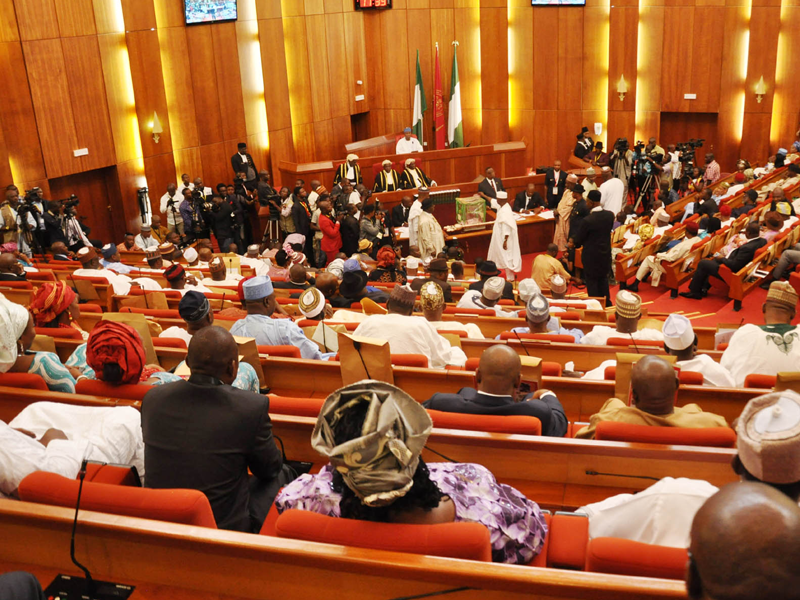Spirituality And Good Governance In Nigeria


In the Scriptures, the Proverbs and Ecclesiastes constitute two of the most profound books which distill insights into human experiences and direction in life. These are indeed books that take my time when I need to reflect on human nature and the conditions for human progress, or the lack of it, as the case may be. It takes little reflection to see how the books of Proverbs and Ecclesiastes could constitute a significant instrument in a reformer’s arsenal. It did not take long for me to immediately see, as a public servant, that the dynamics of governance cannot survive without critical spiritual elements.
Thus, for me, all forms of discourses, and especially the discourse on good governance in Nigeria, has the seed of the spiritual. And that is to the extent that knowledge stands as a key and critical biblical principle. And this is not just knowledge for knowledge sake alone (which in itself has a place in God), but knowledge as an avenue to reach the core of wisdom. Who can forget that stentorian verse in Proverbs (4:7): “Wisdom is the principal thing—Get Wisdom!”
There is no doubt that Nigeria is at a most precarious phase in its existence as a nation. At this time I am reminded of the words of the American philosopher and statesman, Thomas Paine:
These are the times that try men’s souls:
The summer soldier and the sunshine patriot Will in this crisis, shrink from the service of his country, but he that stands it now… will stand to be counted’
These are indeed trying time for Nigeria and Nigerians. My diagnosis is simple: We seem to have lost our ways because we seem to have lost the wisdom of governance and the wisdom of service as well as the wisdom that flows from the spirituality that undergirds both. In this piece, I try to interrogate how the failure of politics and of faith has compromised the unraveling of the Nigerian project.
The Nigerian project of nation-building and national integration, as a “project”, ought to have a timeline of completion and consolidation. However, and as is usual for us, we seem to have given a new meaning to it. This project has been on since independence, and it does not seem to have any end in sight. There are two reasons for the prolonged understanding of the national question in Nigeria. In the first instance, there is the hanging question of what makes up “Nigeria” in the perception of its constituents. Chief Obafemi Awolowo seemed to have captured the feelings of most Nigerians when he referred to Nigeria as a “mere geographical expression.” And in the second instance, to adapt William Gladstone understanding of the Irish Question—When it appears that we are close to getting the answer, the question changes. That is to say that as soon as we seem to have gotten a handle on what the Nigerian national question requires of us, we immediately lose track of what the question is again.
It is therefore with regard to these two reasons that the whole issue of the negotiability or otherwise of the national question, and Nigeria’s unity, should be founded. It is grossly unwise, to pick up the biblical allusion again, to play the ostrich with the national question when the center is no longer holding. These are indeed times that try the souls of Nigerian! We live in mutual suspicion, especially of the domination of one ethnic group by the other.
Ethnic identities have now created a sense of collective hostility rather than serving as a source of collective national strength. Wisdom speaks to the human capacity and capability to deploy knowledge and virtues in a world that is weighed down by moral decadence and political instability. The essence of wisdom is to act and to act right. Wisdom, however, requires circumspection. In fact, the reason why it is called “wisdom” is essential because it goes beyond just a mere deployment of knowledge and virtues. Anyone who must act in the world requires a sense of context, a sense of direction and a sense of the spiritual. These are three components that, as I have discovered, are relevant in the life of anyone that carries the burden of reform.
And this is where faith, religion, and spirituality enter the picture. We all are grossly disappointed by the performance of religion in Nigeria with its tragic fundamentalist and social dimension. On the one hand, Nigeria alone has suffered massive human and governance tragedy resulting from the religious insurgency of Boko Haram. Thousands have been killed, a thousand more rendered homeless while millions of naira have been lost in properties all in the name of religion and God. On the other, the social dimension of Nigeria’s religiosity provides a shocking direct proportionality between the proliferation of churches and mosques and a thriving corruption mentality in the Nigerian society and public life.
Thus, in one breath, we proclaim Nigerians as deeply religious and as deeply corrupt! In 2003, a study carried out in more than 65 countries and published in the UK New Scientist magazine reported that Nigerians are the happiest people on earth. A year later in 2004, a BBC report noted that Nigeria is the most religious country in the world. Over 90% of Nigerians said they believed in God, prayed regularly and would die for their belief. For many years, the Transparency International’s Corruption Perception Index (CPI) rates Nigeria as one of the most corrupt countries of the world. Finally, a 2013 report of the National Bureau of Statistics observed that about 120 million Nigerians are living below the poverty line of $2 a day.
All these are really puzzling demographics. How can a nation combine a very high Gross National Happiness and Gross Domestic Product with equally very high unemployment and poverty rates? How can seemingly wealthy and happy people throw themselves into lagoons where religion seems so powerful? How can lives be so meaningless where happiness seems so high? This statistical evidence only tell us that something is quite wrong in the relationship between religion and politics in Nigeria. And our answer is quite simple and obvious: There is in place in Nigeria a religiosity colored by the hypocrisy that throws in the clergy and the politicians into the same mix of false sanctimonious rituals. Essentially, a large percentage of Nigerians have the infinite capacity to carry religion and piety on the outside, but the very hearts where spirituality ought to reside are very far from God.
To be continued tomorrow.
Being text of a lecture delivered by Dr. Tunji Olaopa at the Ebenezer Baptist Church Campbell Street Island at the Annual Distinguished Guest Lecture to mark October 1st Nigeria Independence Anniversary. Olaopa is Executive Vice Chairman, Ibadan School and Public Policy (ISGPP), Ibadan.
Source: The Guardian








